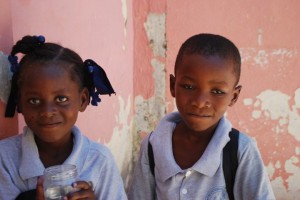 MLJ Adoptions is thrilled to announce that one of our families adopting from Haiti received their referral this week of a two year old boy! For adoptive parents, waiting for a potential match is one of the hardest aspects of international adoption. MLJ Adoptions happily celebrates with this family and looks forward to walking along their side during the remainder of their adoption journey.
MLJ Adoptions is thrilled to announce that one of our families adopting from Haiti received their referral this week of a two year old boy! For adoptive parents, waiting for a potential match is one of the hardest aspects of international adoption. MLJ Adoptions happily celebrates with this family and looks forward to walking along their side during the remainder of their adoption journey.
Since implementing The Hague Convention on the Protection of Children and Co-operation in Respect of Inter-Country Adoption, the adoption process in Haiti slowed down tremendously as Haiti and their Central Authority, Institut du Bien Etre Social et de Recherches (IBESR), put new adoption policies and procedures into place. These new adoption policies and procedures needed to comply with Hague requirements and be in the best interests of the children. The adoption community has watched with eager anticipation as IBESR and Haiti sought to implement these new processes and procedures and begin processing adoptions under their new system. MLJ Adoptions is pleased that Haiti has seemingly begun processing adoptions under their new procedures and are moving forward to place children in need in loving, permanent homes.
Adopting from Haiti has long been popular among adoptive parents, initially due to the extreme poverty suffered by its residents and the number of children in need in this country. Haiti is thought to be the poorest country in the Western Hemisphere. Interest in adopting Haitian children was fueled most recently by the devastating earthquake in January 2010, leaving many children without parents to care for them and overburdening already stretched resources in Haitian crèches (orphanages). The earthquake left thousands dead and additional thousands of families homeless and living in tent cities. Victims of the earthquake also struggled to find clean water and food. In an already poverty stricken country the misery caused by the earthquake amplified efforts by U.S. and Canadian families looking to open their homes to these children in need. Haiti continues efforts to recover from this devastating catastrophe. With Haiti’s close proximity to the United States, it is a frequent mission trip destination, which has made American families more familiar with the need for both international adoption from and humanitarian need for the country.
Haiti is a Hague Convention country, providing stability and oversight into the roller coaster of an international adoption. Families considering adoption from Haiti must be at least thirty years old and married for at least five years. Haiti is also an option for single women who over the age of thirty-five. Although, Haiti has implemented quotas for dossier submissions, there are still openings in MLJ Adoptions’ Haiti International Adoption Program. We have not yet had to limit the number of families accepted into the program for a variety of reasons, and, at this time, dossiers are able to be submitted to Haiti immediately upon completion. This is great news for prospective adoptive families hoping to adopt from Haiti!
MLJ will continue to work with our foreign service provider as well as IBESR to ensure successful matching and placements of children in need in Haiti with waiting and loving families. Congratulations to the adoptive parents as we look forward to the next leg of your journey!
For more information on adopting from Haiti, please contact us.
